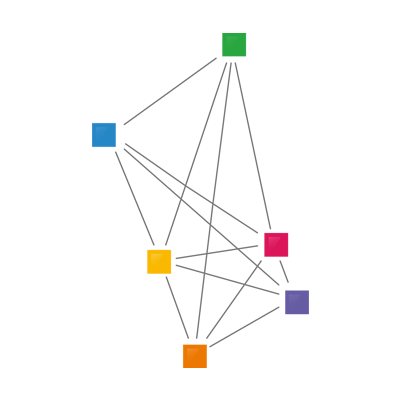Medical revolution/digital health
4 Apr 2019 15:30h - 16:15h
Event report
[Read more session reports and live updates from the 2nd Western Balkan Digital Summit]
The panel was moderated by Mr Damjan Damnjanovic and Ms Ivana Kostic (co-founders of the of Health Tech Lab Serbia).
Ms Milica Djuric Jovicic (Acting Director, Science Fund of the Republic of Serbia) pointed out that the science found is newly established, but was prepared for the last few years. It provides institutional funding for science projects and scientists. It works on financing ideas around the digital developments. She also raised concerns that misuses of science-related terms like artificial technology and big data in commercial purposes might create confusion around the stakeholders. In her words, technology needs to be human-centred. She pointed out that cross-stakeholders approach should be nourished. Starting from the local level, up to the regional level, we need to know what is going on. In conclusion, she called for more people-centric technology.
Ms Jelena Begovic (Acting Director, Institute of Molecular Genetics and Genetic Engineering, University of Belgrade) shed some light on the work of the institute, which now employs more than 100 researchers. She pointed out that no significant changes can be made overnight. They support project related to the digitalisation platform that can gather all stakeholders: users, doctors and the pharmaceutical industry. The idea is to create a massive hub for shared knowledge and for promoting results in this area. Science should be borderless, Begovic added. A reasonable way forward would be to create wider networks to share the information and to cooperate.
Mr Srdjan Jovanovic (CTO, Humeds) pointed out that the entire region has potential. Looking from the perspective of the start-up company, being small gives you the advantage to move faster. Talking about their experience Jovanovic added that working with the health industry gave them an extra valuable input from the area of expertise. Therefore, he called for more data sharing and networking around the sector.
Ms Tatjana Stojadinovic (eDevelopment Manager, Medicines and Medical Devices Agency of Serbia) pointed out that they understand how important digitalisation is. She pointed to some of the 70 agencies digital services developed from 2015. She announced the newest Digital Transformation for All project, which will include human and veterinary medicine. She also emphasised that sharing of information among institutions is the best way forward.
Mr Pavle Zelic (International Cooperation, EU Integrations and Communications Manager, Medicines and Medical Devices Agency of Serbia) showcased the project which the Agency developed with the United Health Alliance considering the buying uncertified medicine online. Illustrated guide in a form of a comic book for three different age groups is aiming to help different age groups understand the risks involved in such actions. Zelic also added that one of the most important things is to properly inform users. He added that the main question is how to best utilise the open data. At the conclusion, he emphasised the importance of local networks and WB6 regional networking.
Many of the medical start-ups were in the audience and at the end of the panel, Mr Damjan Damnjanovic (Co-founder, Health Tech Lab, Serbia) invited the governments and regulators to start a discussion, and support innovative start-up companies that can help move things faster towards more efficient human-centred technology.
By Arvin Kamberi
Related topics
Related event

